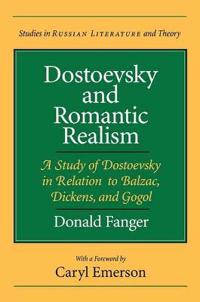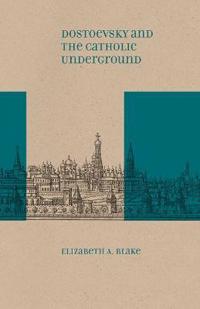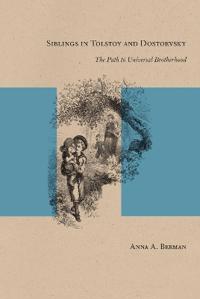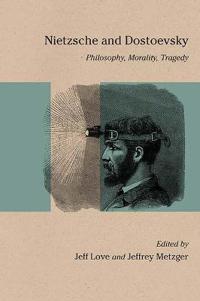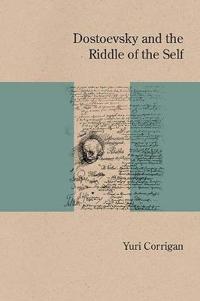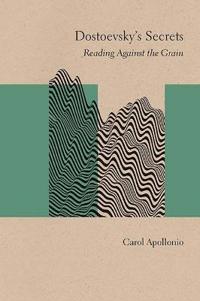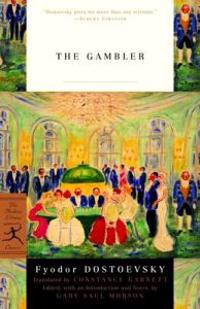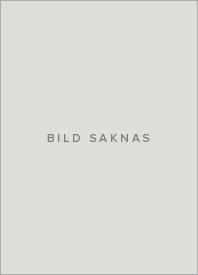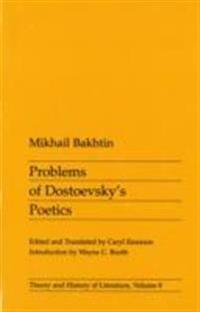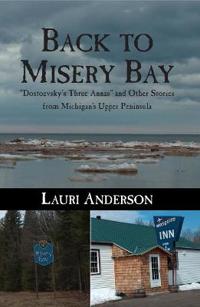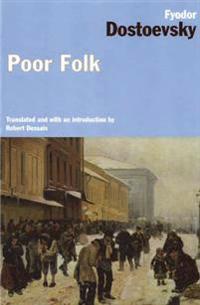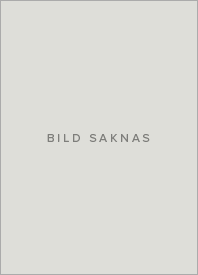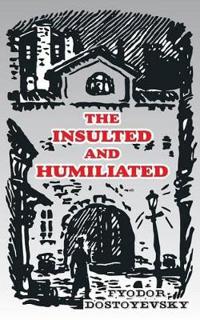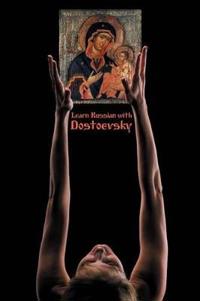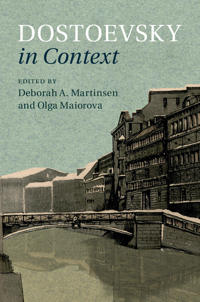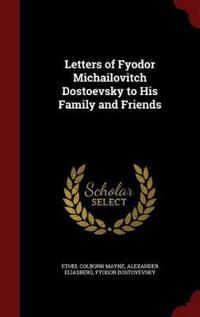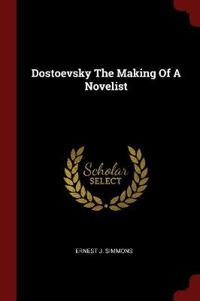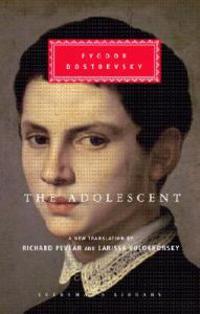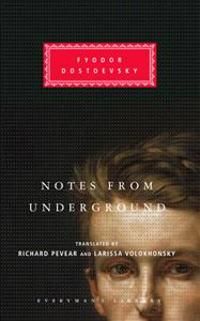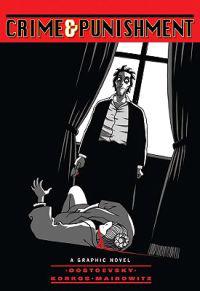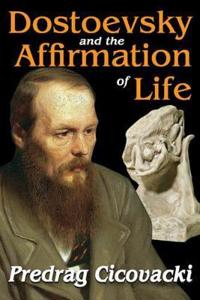Dostoevsky and Romantic Realism
ISBN: 9780810115934 - UTGIVEN: 1998-07Dostoevsky and Romantic Realism is Donald Fanger's groundbreaking study of the art of Dostoevsky and the literary and historical context in which it was created. Through detailed analyses of the work of Balzac, Dickens, and Gogol, Fanger identifies romantic realism, the transformative fusion of two [...]
Wages of Evil: Dostoevsky and Punishment (Inbunden)
avSchur, Anna
ISBN: 9780810128484 - UTGIVEN: 2013-02-15Dostoevsky and the Catholic Underground (Häftad)
avElizabeth A. Blake
ISBN: 9780810129573 - UTGIVEN: 2014-04While Dostoevsky's relation to religion is well-trod ground, there exists no comprehensive study of Dostoevsky and Catholicism. Elizabeth Blake's ambitious and learned Dostoevsky and the Catholic Underground fills this glaring omission in the scholarship. Previous commentators have traced a wide-ran[...]
Siblings in Tolstoy and Dostoevsky
ISBN: 9780810131576 - UTGIVEN: 2015-09Anna A. Berman's book brings to light the significance of sibling relationships in the writings of Tolstoy and Dostoevsky. Relationships in their works have typically been studied through the lens of erotic love in the former, and intergenerational conflict in the latter.In close readings of their m[...]
Nietzsche and Dostoevsky (häftad)
ISBN: 9780810133945 - UTGIVEN: 2016-10After more than a century, the urgency with which the writing of Fyodor Dostoevsky and Friedrich Nietzsche speaks to us is undiminished. Nietzsche explicitly acknowledged Dostoevsky's relevance to his work, noting its affinities as well as itspoints of opposition. Both of them are credited with layi[...]
Dostoevsky and the Riddle of the Self
ISBN: 9780810135703 - UTGIVEN: 2017-10Dostoevsky was hostile to the notion of individual autonomy, and yet, throughout his life and work, he vigorously advocated the freedom and inviolability of the self. This ambivalence has animated his diverse and often self-contradictory legacy: as precursor of psychoanalysis, forefather of existent[...]
Dostoevsky's Secrets (häftad)
ISBN: 9780810139855 - UTGIVEN: 2018-11When Fyodor Dostoevsky proclaims that he is a ""realist in a higher sense,"" it is because the facts are irrelevant to his truth. And it is in this spirit that Apollonio approaches Dostoevsky's work, reading through the facts-the text-of his canonical novels for the deeper truth that they distort, m[...]
Crime and Punishment (Inbunden)
avFyodor Mikhailovich Dostoevsky, Joseph Frank
ISBN: 9780812415377 - UTGIVEN: 1996-10Surprised by Shame: Dostoevsky's Liars and Narrative Exposur (multimedia)
ISBN: 9780814290088 - UTGIVEN: 2003-03Back to Misery Bay: "Dostoevsky's Three Annas" and Other Stories from Michigan's Upper Peninsula (Häftad)
avLauri Anderson
ISBN: 9780878392568 - UTGIVEN: 200707Poor Folk (Häftad)
avF. M. Dostoevsky
ISBN: 9780882337555 - UTGIVEN: 2003-12Poor Folk, Dostoevsky's first novel, released in 1846, occupies a position of particular interest and importance in the history of Russian literature, as it represents the confluence of important literary traditions, especially the influence of Gogol. While a natural starting point for anyone who re[...]
The New Russian Dostoevsky (Pocket)
avCarol (EDT) Apollonio, Joseph (CON) Fitzpatrick, Daniel (CON) Shvartsman
ISBN: 9780893573720 - UTGIVEN: 2010-06Russian Classics in Russian and English (Häftad)
avFyodor Dostoevsky, Alexander Vassiliev
ISBN: 9780957346239 - UTGIVEN: 2012-11Dostoevsky in Context
ISBN: 9781107028760 - UTGIVEN: 2016-11This volume explores the Russia where the great writer, Fyodor Dostoevsky (1821 1881), was born and lived. It focuses not only on the Russia depicted in Dostoevsky's works, but also on the Russian life that he and his contemporaries experienced: on social practices and historical developments, polit[...]
Letters of Fyodor Michailovitch Dostoevsky to His Family and Friends
ISBN: 9781297733734 - UTGIVEN: 2015-08The Adolescent (Inbunden)
avFyodor Mikhailovich Dostoevsky
ISBN: 9781400041183 - UTGIVEN: 2003-11Nineteen-year-old Arkady Dolgoruky, the illegitimate son of a landowner, has difficulty establishing his personal identity amid the political and social upheavals of nineteenth-century Russia, in a new translation of a novel by the author of Crime and Punishment.[...]
Notes from Underground (Inbunden)
avFyodor M. Dostoevsky, Fyodor Dostoyevsky
ISBN: 9781400041916 - UTGIVEN: 200403Dostoevsky's most revolutionary novel, "Notes from Underground" marks the dividing line between nineteenth- and twentieth-century fiction, and between the visions of self each century embodied. One of the most remarkable characters in literature, the unnamed narrator is a former official who has def[...]
Crime & Punishment: A Graphic Novel (Häftad)
avFyodor M. Dostoevsky, Alain Korkos, David Zane Mairowitz
ISBN: 9781411415942 - UTGIVEN: 200901"And, in the dark, a thought came to me that no one had ever had before me: I wanted to kill someone, just in order to dare." This graphic adaptation of "Crime and Punishment" masterfully illuminates Dostoevsky's psychological thriller. Acclaimed French artist Alain Korkos vividly brings to life the[...]
Dostoevsky and the Affirmation of Life
ISBN: 9781412853835 - UTGIVEN: 2014-02Dostoevsky's philosophy of life is unfolded in this searching analysis of his five greatest works: Notes from the Underground, Crime and Punishment, The Idiot, The Possessed, and The Brothers Karamazov. Predrag Cicovacki deals with a fundamental issue in Dostoevsky's opus neglected by all of his com[...]

